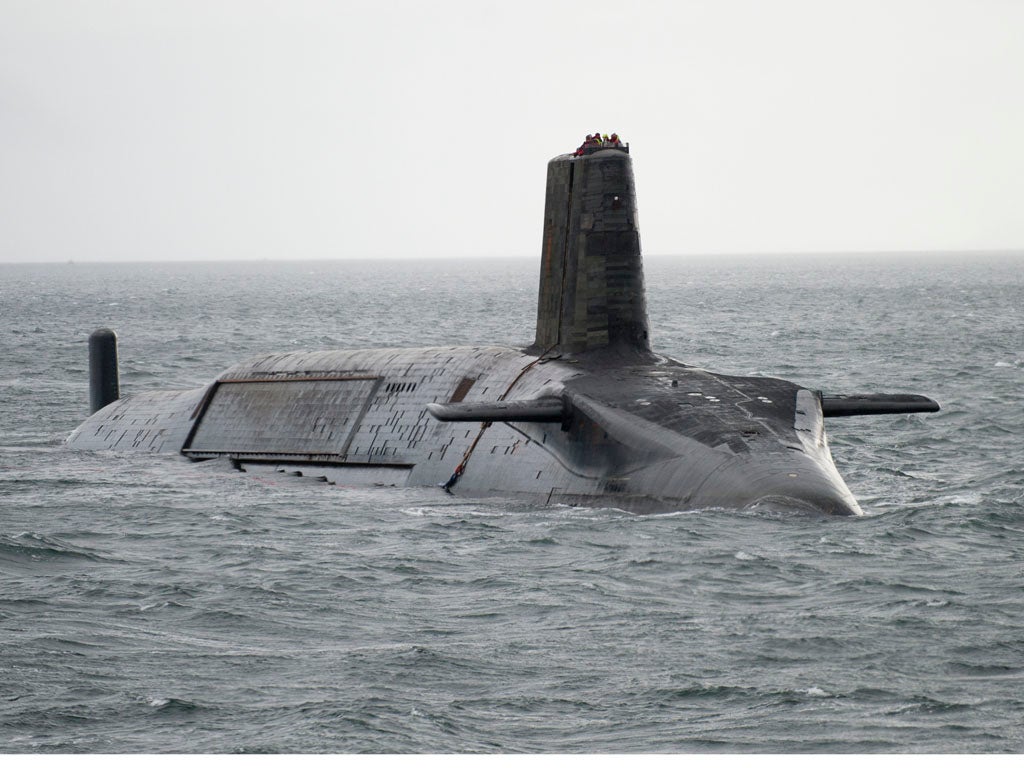Our nuclear weapons are neither needed nor deployed. Does Ed Miliband have the courage to scrap them?
There would be no better way for the Labour leader to make a break with the past than a renouncing of Trident. He knows we simply do not need it

After half a century of avoiding a decision it is surely about time that the Labour Party got round to abandoning our nuclear deterrent. For there has been no rational reason for retaining this expensive toy since the Soviet Union collapsed over twenty years ago. Although the Russians, like the French and of course the Americans, have retained their nuclear weapons none of the nuclear-armed countries which pose any kind of threat – Israel, India. Pakistan, North Korea and soon possibly Iran as well – are ever going to be able to reach the White Cliffs of Dover.
The list of the ‘new’ nuclear states – with the obvious exception of China – is a clear demonstration of the disconnect that has evolved over the past decades. There are countries which feel the need for a bomb for a variety of reasons, like Israel because of a perceived threat to their very existence, like India and Pakistan because of mutual suspicion or like Iran and North Korea to demonstrate their grown-up status in the world. On the other hand there are major economic powers, most obviously Japan, Germany and Brazil, which feel no need the reassurance provided by the possession of the bomb. So Britain’s continuing apparent need to possess the bomb can be ascribed to a feeling of psychological rather than military insecurity.
The Labour party’s failure to acknowledge this fact and to press for so obvious a step springs from history. For decades after the launch of the Campaign for Nuclear Disarmament in the late 1950s the idea was synonymous with the - by definition unelectable - extreme left, an assumption reinforced by the prominent place disarmament played in the 1983 election manifesto, that so-called ‘suicide note’. Messrs Brown and Blair were first elected that year so it was not surprising that they – yes for once they were in agreement – decided to start preparations for replacing our fleet of Trident submarines a decade before construction was due to start.
As a result were Mr Milliband to come out as a nuclear disarmer now it would be as decisive a gesture symbolising a complete break with the past as was the abandonment of Clause 4 by Tony Blair, and would be greeted by the great mass of the British public today with a mixture of indifference and relief. Nor would the Armed forces be unhappy, the Army and Air Force have long believed in the step, indeed some courageous Chiefs of the General Staff have been pressing for it for decades
The Navy – and the workers in the shipyards involved – could be reconciled by the work needed to convert the present Trident fleet into ‘hunter-killer’ submarines and to build some more relevant ships, like the frigates deemed essential by admirals since the days of Lord Nelson. But the decision would also mark a major turning point in emphasising that were significant not because of our nuclear armaments but because we are a seriously significant country for all sorts of reasons –we have put on the most successful Olympic Games in history, in which we proved to be a major power in the world of sports, a duel triumph which finally removed any excuse for further nuclear posturing.
Join our commenting forum
Join thought-provoking conversations, follow other Independent readers and see their replies
Comments
Bookmark popover
Removed from bookmarks